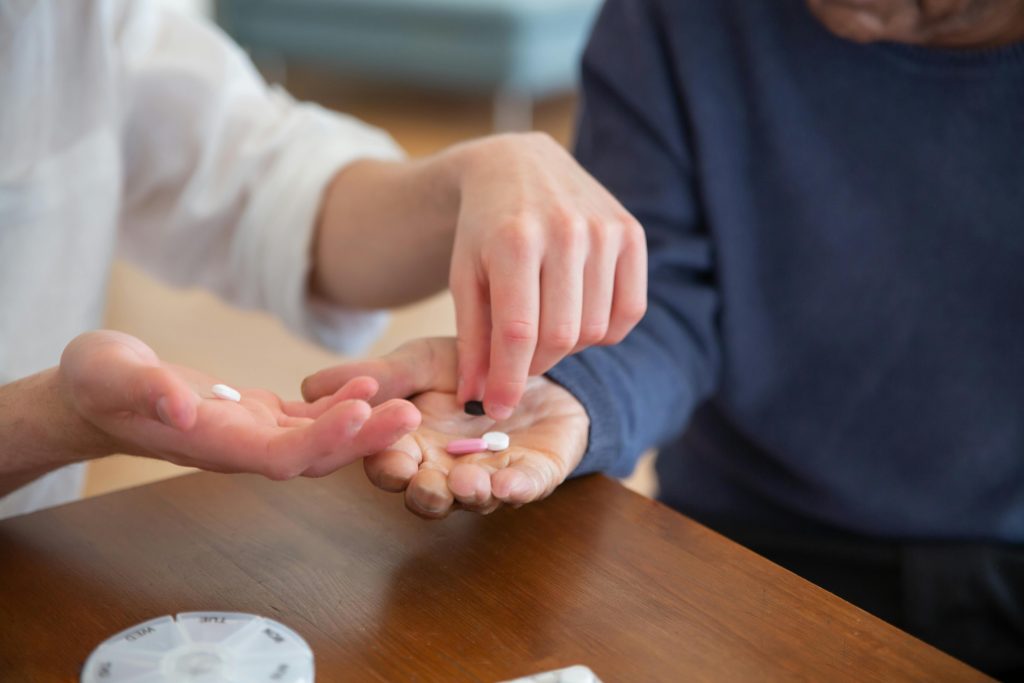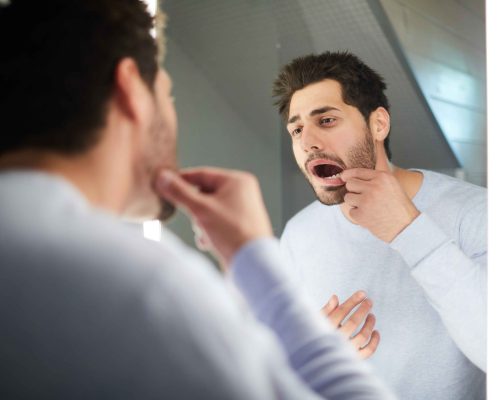Written By: Teresa Greco
In today’s fast-paced world—where long hours, physical demands, and high expectations often leave little room for personal well-being—too many men are pushing through pain, ignoring warning signs, and sidelining their health. While the conversation around self-care is growing, the reality is that many men still struggle to see it as a priority, let alone a necessity. It’s time to shift that mindset. Whether behind a desk, behind the wheel, or on the job site, self-care is no longer a luxury. It’s a necessity—and the foundation for living longer, feeling better, and staying strong in all the ways that matter.


“Self-care is an important topic for all Canadians—including men,” says Patrick Rosettis, Interim General Manager & Vice President Finance at Haleon Canada, the company behind trusted brands like Advil, Centrum and Sensodyne. He reflects on how, during the pandemic, caring for one’s mental and physical well-being moved from the periphery to the centre of daily life. Yet, Haleon’s recent research reveals that nearly half of Canadian men still lack the time or resources to prioritize it.
At the core of these outcomes is an ingrained social narrative that tells men to be stoic, strong, and silent. Many grow up believing that expressing vulnerability or asking for help is weakness. “Just power through it,” they’re told. But that mindset often delays crucial care until it’s too late. Patrick acknowledges this too, noting how societal expectations can make it difficult for men to admit they are struggling. “Many men still believe that caring for themselves means they’re not tough enough,” he explains. “But in truth, it takes strength to recognize your limits and take meaningful steps to address them.”
The cost of neglect is real. According to Movember’s The Real Face of Men’s Health report, nearly 75,000 Canadian men died prematurely last year, many from preventable causes like heart disease, cancer, and suicide. In fact, men are 135% more likely than women to die early from coronary heart disease and nearly three times as likely to die by suicide.[1] These aren’t just numbers. These are fathers, brothers, sons, coworkers—lives that could have continued with the proper support.
Self-care does not have to mean taking time off work or following a complex wellness routine. It is as much about prevention as it is maintaining daily well-being, such as managing minor ailments with over-the-counter products at the first sign of symptoms. The benefits are tangible, as research suggests that if just 2% more Canadians managed mild cold symptoms at home, it would free up 500,000 medical appointments[2].

Health strategies must also reflect the reality that care is not always accessible. Nearly one-third of Canadians don’t have a family doctor, and for men in rural, remote, or underserved areas, booking an appointment can feel like a luxury. Here’s where health literacy plays a pivotal role. Health literacy means having the knowledge, tools, and confidence to understand health information and make wise decisions. It is knowing when a sore muscle just needs rest or when it’s time to consider an over-the-counter pain management product—and when it might be something more serious. The Health Inclusivity Index released this spring, conducted by Economist Impact and supported by Haleon, shows that improving health literacy by just 25% could save the Canadian healthcare system over $7.2 billion [3]. But more importantly, it helps men show up—for themselves, their families, and their communities.
Movember reports that 54% of Canadian men face one or more barriers to effective engagement with healthcare providers1 whether it’s cost, time, geographic isolation, or internalized beliefs that they need to “tough it out.” When care is out of reach or when stigma silences concern, issues worsen. This is especially true for men whose work puts intense strain on their bodies—those in trades, construction, and other physically demanding fields. When your job demands strength, taking care of your body is not optional—it’s essential. Yet, too often, these men ignore symptoms or power through pain, dismissing early signs that deserve attention. Making health care more accessible and acceptable for these men is not just about convenience—it is about respecting the wear and tear of real life and validating the right to feel well. That is why education, early action, and normalizing help-seeking behaviours are essential.
The economic impact of ignoring these realities is staggering. According to Movember’s report, Canada could save an estimated $12.4 billion each year by addressing a range of preventable male health issues1—conditions that not only lead to premature death but also reduce quality of life and strain families, communities, and the healthcare system. But this is not just about the bottom line. It is about giving men the opportunity to live full, healthy lives.
Patrick leads by example. “I’m 6 foot 4 and I’m active. I play basketball and tennis regularly,” he shares. “Managing chronic back pain with stretching, rest, and over-the-counter options helps me stay mobile and avoid unnecessary doctor visits.” His approach is simple: listen to your body, and act before things get worse.


Fortunately, new options are helping close the access gap. Pharmacists now have expanded roles, offering trusted advice and prescriptions for common ailments—without the wait time or formality of a clinic. Initiatives like the Haleon Health Trailer are also creating more touchpoints for care, bringing face-to-face education and resources to communities that may otherwise go without.
And let’s not forget the power of timing. Each year on International Self-Care Day (July 24), Canadians are reminded to check in with themselves. This symbolic day—chosen because it is 24/7—reflects the idea that self-care is for everyone, every day. Patrick encourages all men to see this not as an event, but as an invitation: “Self-care can be integrated into daily life. It’s about small decisions that compound over time.”
Self-care doesn’t have to look the same for everyone. For some, it is preparing a healthy meal. For others, it is making time for rest, reconnecting with friends, or finally getting that nagging issue checked out. It’s about consistency, not perfection. And perhaps most importantly, it is about rewriting the narrative of what it means to be a man today.
When men are well, families are stronger, workplaces function better, and communities become more resilient. The ripple effect of a man who prioritizes his health extends far beyond himself.
Strength isn’t just physical; it’s also emotional and mental. It is the ability to ask for help, to pause without guilt, and to value one’s own well-being. “Self-care is not selfish. Self-care is healthcare,” Patrick affirms. For men from every walk of life, that is a truth worth repeating.
Self-care isn’t a trend. It’s the new standard. And it belongs to every man—every day of the year.
[1] Movember Institute of Men’s Health, “The Real Face of Men’s Health: 2025 Canadian Report” Movember (2025): 9.
[2] Kristin R. Willemsen, Gerry Harrington, “From Patient to Resource: The Role of Self-Care in Patient-Centred Care for Minor Ailments,” Self Care 3, no. 3 (2012): 43-55.
[3] Haleon, “Improving health literacy could save billions and boost GDP” Haleon (2025).
